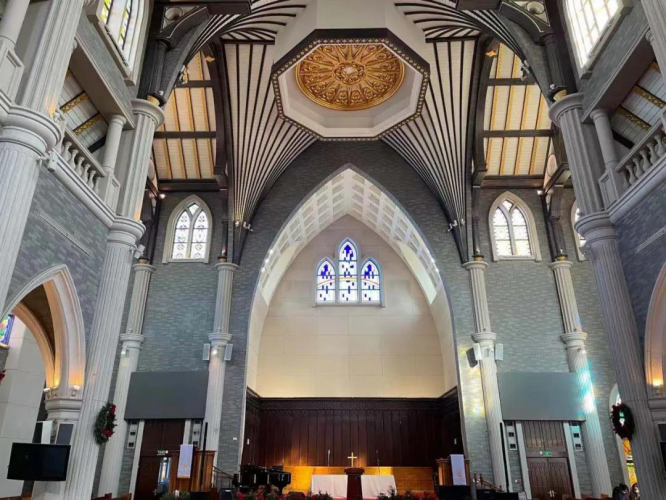As the Administrative Measures for Internet Religious Information Services will be fully implemented on September 1, let’s take a look at the past months what the church in China has achieved from the legal aspect to cope with the challenge of obtaining governmental approval to share religious information online.
Released by the State Administration for Religious Affairs on December 3, 2021, the "Administrative Measures for Internet Religious Information Services" came into force on March 1. Article 34 in Chapter V “Supplementary Provisions” says, “Those engaged in Internet Religious Information Services before these measures take effect shall follow these Measures to complete the permit formalities within 6 months of these measures taking effect.” All the registered and underground churches and Christian organizations across China are waiting to see how the rules will be thoroughly carried out from September 1.
The registered church has been attempting to pass relevant exams and obtain the permits and some of them succeed, while the house church has suffered WeChat account demolition, website shutdown, and restrictions, trying to explore any alternative to release Christian material online.
At the end of February, the State Administration for Religious Affairs released the application form to complete the permit formalities. The applicants should be a religious body, school, premise, or other organization. It also notes that they must have an Internet religious information reviewer each. Henan and Jiangsu Provinces also published application notices.
In March, many provinces successively issued the enforcement bylaws of the new internet regulations, including Beijing, Shanghai, Fujian, and Shandong. On March 16, the first Internet religious information service license examination was announced by Jiangsu Province to be put off due to COVID-19.
A temple obtained the first-ever license in Zhejiang Province in April, while four candidates from Nanjing attended the exam for Internet religious information auditors which was conducted first in Jiangsu Province.
Some official churches and seminaries in Zhejiang, Jiangsu, and Guangdong had obtained the licenses in May. Relevant training programs or exams took place in Inner Mongolia and Shandong. During the month, Gansu, Qinghai, and Guangdong released the notices of applying for the licenses.
One month later, Beijing, Heilongjiang, and Hunan announced the first licensed religious bodies. Shanghai released a notice on the future examiner’s exam and started the registration, while Guangdong published the list of those who were qualified to become religious information examiners and Guangxi conducted the training program.
Some churches succeeded in receiving the permits in July. Applicants enrolled in the exams to be unfolded in Shanxi, Henan, and Liaoning. Religious schools in Shanghai held specific training meetings on how to conduct religious information services. The second list of qualifiers was announced in Guangdong and Qinghai released the first batch of licenses. A total of 31 permits were distributed to religious bodies in Shandong as of the end of July.
Beijing saw the approval licenses released to many Catholic churches and some Protestant churches in August, according to Beijing Ethnic and Religious Affairs Commission. The first exam for Internet religious information auditors conducted in Shanxi disappointed many grassroots pastors as only 24 applicants out of 150 passed, thus many candidates were absent in the second exam held on August 22. Similar exams also took place in Shandong, Henan, and Jiangxi. Two churches in Liaoning were among the first batch of public permit recipients in the province. Guangdong issued permits to 38 Catholic churches and organizations.












